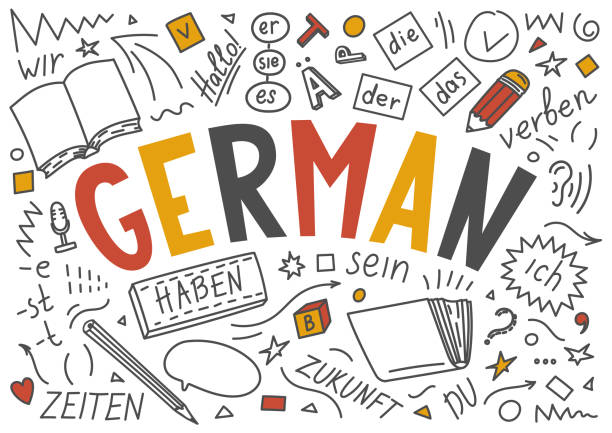
LEARN GERMAN WITH TESCA
At TESCA, we carefully choose teachers who can focus on exam preparation and are familiar with the testing patterns, and the expectations of examiners. Our trainers will help you to understand the benefits of various German language levels. TESCA offers lessons for individuals who are in dire need of an extra dimension/attention or groups that require an overall development.
The International Exam Preparation program at TESCA is designed to prepare you for the Goethe or TELC. TESCA offers an integrated learning experience. Our programs are short and tailored based on various German language levels to assure your International German Examination Success. These tests are accepted in Germany, Austria, and Luxembourg for employment, Immigration, and University enrolment. The course consists of the practice of all four modules (Goethe or TELC) Listening, Reading, Writing, & Speaking. TESCA offers classroom and online GOETHE exam preparation and is recognized as one of the best training centers globally. Our teachers share tips, techniques, vocabulary, and grammar for Speaking and Writing. We mark your work and focus on helping you overcome your weakness.
5 THINGS YOU DIDN'T KNOW ABOUT THE GERMAN LANGUAGE :
1. USAGE
German is spoken by more than 120 million people in Austria, Germany, Liechtenstein, Luxembourg, Switzerland, and in parts of Belgium, Northern Italy, and Eastern France. It is a key language in the European Union and the new economies of Central and Eastern Europe. Even abroad, the German language seems to be in great demand. According to ZAF (Center for Education and Training), in 2015 about 15.4 million people attended German courses at schools, universities, or language institutes; half a million more students than 5 years ago.
In addition, German belongs among the ten most popular languages ?? in the world and that is why we also got an entry in the Guinness Book of World Records in 2006.
2. BY A HAIR’S BREADTH GERMAN HAS BECOME THE MAIN LANGUAGE OF THE USA
For more than 200 years, there has been a legend, which says that German almost became the official language of the USA. But is that true? Like with every legend, there is some truth in it. In 1794, a group of German immigrants presented a petition in Virginia to the US House of Representatives, demanding a German translation of the legal texts. The motion was rejected by 42 votes against 41. This caused frustration among the immigrants, which formed the basis for the legend. Even in the next generation, the so-called “Mühlenberg-legend” gained more and more popularity. According to rumors, in 1828 there was a vote in Pennsylvania on whether German should be introduced as the second official language besides English. Supposedly, only one single vote prevented the application of the motion and this vote came from the ethnic German parliamentary speaker “Mühlenberg.”
3. THE GERMAN VOCABULARY
The German language consists of about 5.3 million words – with a rising trend. About one-third of those words were added in the last 100 years. This means the German language contains eight times as many words as the English language. In everyday conversation, we use much fewer words: only 12.000 – 16.000 words including about 3.500 foreign words. The “Duden”, a popular reference book for grammar and orthography of the German language, lists 135.000 words. Because of the possibility of creating words by joining single words together to make one word, the German language is considered a particularly rich language. For example: Wehrdienstverweigerer” (EN: conscientious objector) or “Weltmeisterschaftseröffnungsspiel” (EN: world championship opening game).
4. FALSE FRIENDS
German and English have more in common than you might think. Words like “Kindergarten” or “Strudel” for example, mean the same in English and German. But there are some words that are a bit tricky. Those words are called false friends: words that are similar in the German and English languages but mean something different. Here are some examples:
- The word: kind
English meaning: nice, cute
German meaning with a capital letter at the beginning: child
- The word: still
English meaning: nevertheless, however
German meaning: silent
- The word: spring
English meaning: a time of the year/season
German Meaning: jump
So be careful, because so-called “false friends” can quickly lead you to the wrong track, and your conversation partner and you could speak of very different things.
5. “STANDARD GERMAN” DOES NOT REALLY EXIST
Often, students ask us what the term “standard German” really means. The answer is quite simple because in fact, Standard German is just another word for High German and that is what we teach at the ActiLingua Academy. High German or Standard German is a mixture of Middle German and Upper German and most of the Austrian dialects are based on it. Even if many Austrians insist on speaking their own language, the differences between the “Austrian” and the “German” German are almost nonexistent. Although there are some words on which we have not fully agreed yet, such as Paradise (DE: tomato) or Schlagobers (DE: whipped cream) we always understand each other.
German Exam Levels:
The test has 6 different levels –
A1 & A2 for Beginners,
B1 & B2 for Intermediate level,
&
C1 & C2 for the advanced speakers.
What is the passing mark for German A1 exam?
A student has to score a minimum of 60% to pass the Goethe German exam.

